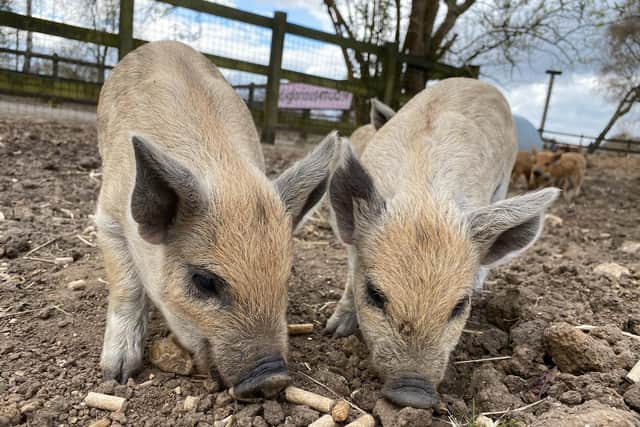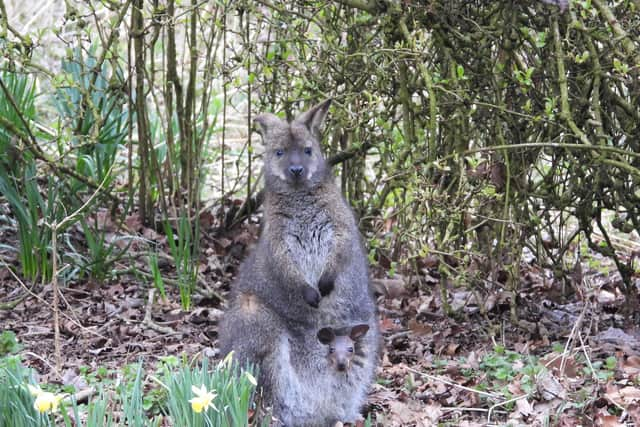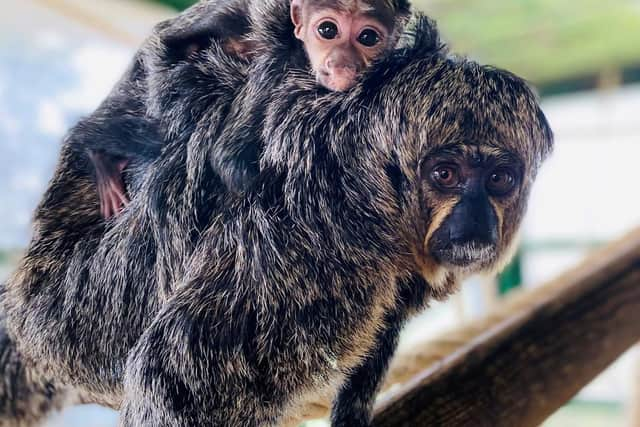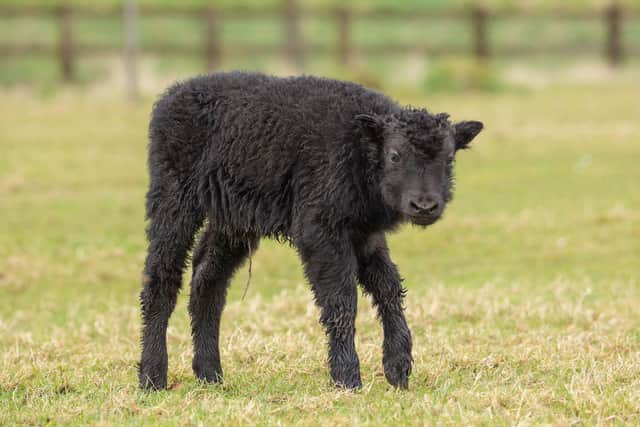Zookeepers celebrate baby boom as ZSL Whipsnade welcomes a yak, saki monkey, wallabies and piglets
This article contains affiliate links. We may earn a small commission on items purchased through this article, but that does not affect our editorial judgement.
and live on Freeview channel 276
Spring has sprung at ZSL Whipsnade Zoo where zookeepers are celebrating a baby boom, after a flurry of animal births.
While visitors have been flocking back to UK’s largest Zoo, its keepers have also had array of other new arrivals to welcome, including a baby saki monkey, a yak calf and a litter of woolly, Mangalitsa piglets.
Advertisement
Hide AdAdvertisement
Hide AdThe as-yet-unnamed baby White-faced saki monkey (Pithecia pithecia) was born to mum Kaituma and dad Milagre on Wednesday, March 10, but keepers are not yet able to tell the sex of the tiny primate.


If female, the white-faced saki monkey will retain its brown and golden coat, but if male it will go on to develop the distinctive black hair and white face that gives the species its name.
In photos snapped by the Zoo’s keepers, the tiny brown monkey can be seen poking out from between its mum’s legs, as it hangs onto her belly.
Animal Manager Matt Webb said: “This week for the first time, the baby saki monkey has begun to move around onto mum Kaituma’s back, where he or she will spend the next few months before venturing out on its own.
Advertisement
Hide AdAdvertisement
Hide Ad"The other female of the group, two-year-old Inca, has also taken her turn babysitting, carrying the baby around for a while on her back to give Kaituma a break. That’s how female saki monkeys learn about child-rearing – they get hands-on experience from a very young age.”


A larger arrival delighted keepers on Saturday, March 20, when female yak (Bos grunniens) Hermione gave birth to a calf, named Snape by his keepers.
Matt added: “Little Snape was up on his feet and bouncing around the paddock within hours of being born. He loves to play with the other young yaks, Fred, George and Ginny, and we can already see the very beginnings of his horns, which start growing from birth.
“Hermione is a wonderful mum. Yak mothers are very protective, as, in the wild, they have to protect their young from snow leopards and wolves. That’s why they have such big horns.”
Advertisement
Hide AdAdvertisement
Hide AdYaks grow long hair and store fat very efficiently in their bodies which enables them to withstand incredibly low temperatures in the Himalayas.


All across the Zoo, free-roaming animals, such as Red-necked wallabies (Macropus rufogriseus rufogriseus) - which bounce all over the site - have also been expanding their families in the spring sunshine.
Visitors to the Zoo may spot wallaby mothers with joeys in their pouches. Female wallabies, unlike most mammals, are able to have a “conveyor belt” of babies, sometimes simultaneously carrying an embryo in their uterus, a small joey nursing in their pouch and a larger (“toddler”) joey alongside them.
Meanwhile, at the Zoo’s farm, two large litters of woolly, Mangalitsa piglets (Sus scrofa domesticus) – a rare, Hungarian breed of pig – were born to mums Blanka and Marja, delighting the Zoo’s younger visitors. Born stripey, the pigs are already beginning to grow their strangely sheep-like woolly coats.
Advertisement
Hide AdAdvertisement
Hide AdMatt said: “After such a difficult year, seeing the Zoo filled with people, as well as new life, feels like just what the doctor ordered.


"We’re looking forward to safely welcoming back many more visitors and members over the spring and summer, so it’s lovely that there will be brand new animals for them to discover upon their return.”
Visitors can now book tickets for ZSL Whipsnade Zoo at www.zsl.org.